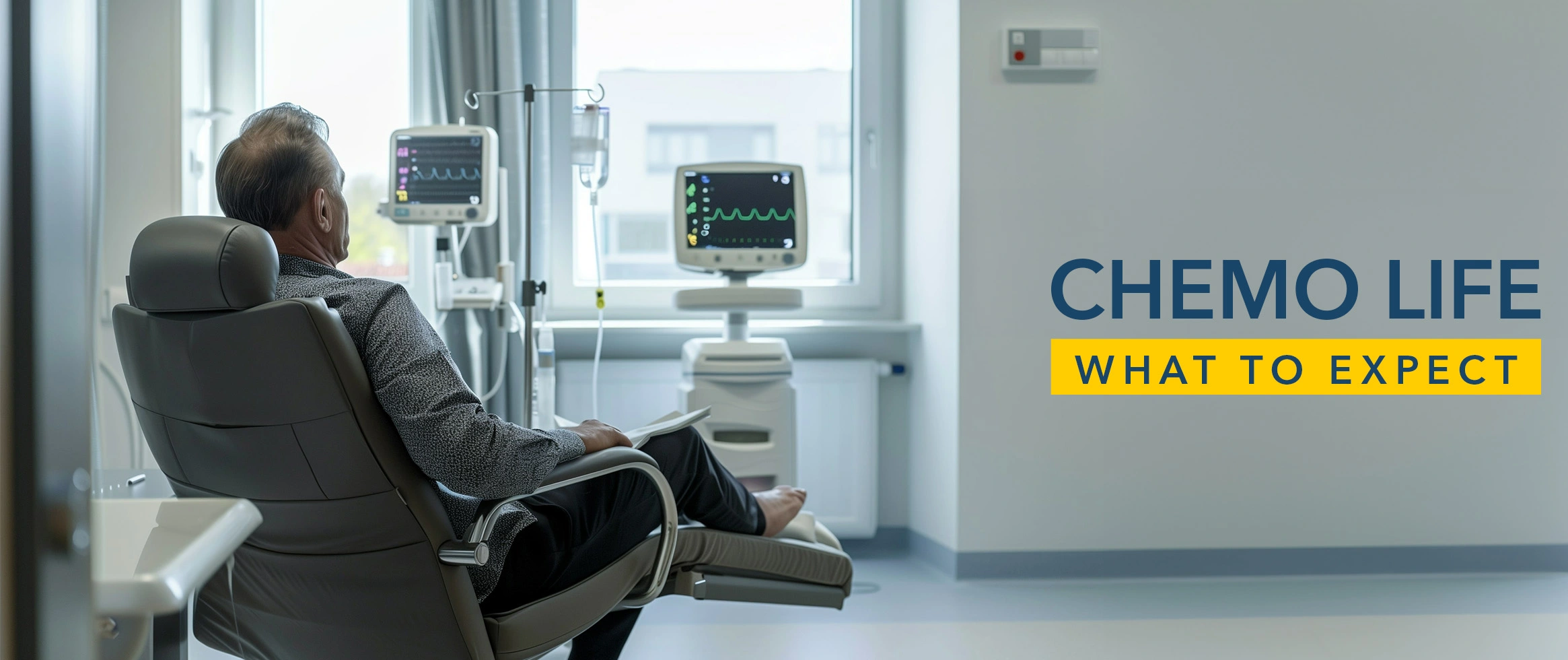
We’ll confirm your booking shortly!
Please provide your number to receive updates.
Enter the 6-digit verification code we just sent you to through SMS. Change Mobile

Chemotherapy treatment is no doubt a life-saving procedure. But it is not usual to feel drowned and energy deprived after undergoing it. You may have your own set of bad days and emotions to fight for!
After being diagnosed with cancer, generally, your first ask to your doctor is whether you need chemotherapy or chemo sessions. After all, it is one of the most standard approaches to an effective cancer treatment.
While chemotherapy medicines are pretty robust to destroy all your cancerous cells, they are potent enough to damage the healthy ones as well. The severity of the side effects depends on your age, your cancer stage, and the dose and duration of your chemo sessions.
So, here's all that you need to know about its side effects -
Chemotherapy medications result in a severe loss of healthy blood cells, triggering a condition called anemia. Symptoms of anemia are lightheadedness, fatigue, rapid heartbeat, shortness of breath, and pale skin.
It can also decrease the count of your platelets in the blood. This condition is called thrombocytopenia, resulting in frequent bruising and bleeding symptoms. Symptoms here include nosebleeds, tiny red dots or patches on your skin, and heavier menstruation.
Chemotherapy side effects on your nervous and muscular systems are also quite well-known. Your chemotherapy medication may interfere with your memory or reasoning power. This complication is called a Chemo brain. Symptoms include - lack of emotional balance, slower reflexes, seizures, weakness, and erectile dysfunction.
Unsteadiness, or what you generally refer to as difficulty in balancing, increases your risk of falling. You can consult an occupational or physical therapist to manage and improve your motor skills and coordination effectively.
Consuming frequent larger doses of your chemo drugs might trigger chemotherapy side effects on your digestive system. It starts with the pain and discomfort around your throat and mouth. Specific chemotherapy procedures may also impact your mucosa more than other chemotherapy treatments. You are likely to experience a lot of cavities, bleeding, swelling, dry mouth or xerostomia, mouth sores, difficulty chewing or swallowing anything, etc.
Chemotherapy medication is also likely to harm your gastrointestinal tract, causing diarrhea, constipation, bloating, pressure, and gas built up within your abdomen.
Side effects of chemotherapy procedures are most evidently witnessed in your integumentary systems, such as skin, nails, and hair. Most of the chemo medicines affect hair follicles, causing a condition known as alopecia. This is visible within the first few days or weeks of your procedure. You may also experience minor skin issues such as excessive dryness, peeling, rashes, and itching.
Talk to your doctor. They might prescribe a good ointment to soothe irritated skin and an excellent moisturizer to keep it hydrated and moisturized. Nevertheless, your fingernails and toenails might also turn yellow and brittle. In severe cases, you may witness them falling off their nail bed. You can help them stay healthier by following a proper moisturizing routine and cutting them off routinely.
Chemotherapy side effects are more profound on your sexual health and reproduction. Women are likely to witness changes to their ovaries, causing irregularities in their period cycles, hot flashes, sudden triggers of menopause, infertility, and dry vaginal tissues. Men are more likely to harm their sperm count and sperm health. Both men and women are likely to suffer from infertility issues.
While the side effects of chemotherapy treatments are unavoidable, you must sit down with your doctor and predict how it will impact you. You can check with your doctor for:
Once you are familiar with the answers to these questions, you can make an informed decision regarding your chemotherapy treatment schedule. Remember, the grass is always greener on the other side. Facing the chemotherapy side effects and combating them is the key to dealing with cancer and leading a normal life.
Discover precision diagnostics with Pathkind Labs, a trusted name in diagnostic services in India. Our NABL accredited labs, equipped with advanced technology, are staffed by a certified team of over 200+ senior pathologists and 2000+ technicians. From tailored health check-ups to specialized tests in Oncology, Neurology, Gynaecology, Nephrology, and more, we've got your health covered. Skip the hassle with online booking for tests or check-ups, available for both lab visits and at-home blood collection. For a seamless experience and early detection, choose Pathkind Labs in Gurugram. Book your appointment today and experience diagnostics made easy.
© 2025 Pathkind Diagnostics Pvt. Ltd. All Rights Reserved | Unsubscribe
